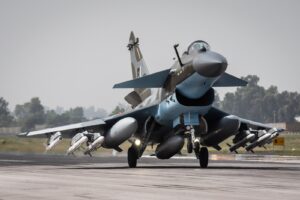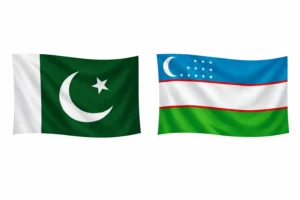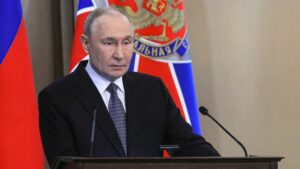Pakistan Seeks $20 Billion Investment to Rejuvenate Economy Through G2G Agreements

Islamabad, The Gulf Observer: In a strategic move to revitalise its economy, Pakistan is seeking up to $20 billion in investment, primarily through government-to-government (G2G) agreements. The initiative aims to deepen partnerships with key development partners, particularly Saudi Arabia and the Gulf states, as Islamabad pursues high-level negotiations to secure substantial inflows across multiple sectors.
Minister for Petroleum Musadik Malik, in a briefing to a parliamentary panel on Tuesday, confirmed that efforts to attract this significant investment are already underway. “Efforts to secure up to $20 billion in investment for Pakistan, with a focus on government-to-government (G2G) agreements, is underway,” Malik stated, highlighting the importance of these partnerships in bolstering the nation’s economic prospects.
The Senate Standing Committee on Petroleum, chaired by Senator Umer Farooq, convened to discuss various pressing issues, including the discontinuation of gas supplies to captive power plants. These plants had made substantial investments in efficiency upgrades at the government’s request, leading to concerns among committee members about the impact of the supply cuts on the industrial sector. Senator Mohsin Aziz pointed out that many industries had invested in power plants with 50 percent efficiency to meet their energy needs, questioning the rationale behind the discontinuation of gas supplies.
Responding to these concerns, the Director General of Gas explained that the International Monetary Fund (IMF) had recommended moving these plants to the national grid due to their lower efficiency compared to LNG plants. As a result, the IMF advised the government to disconnect gas supplies. The Petroleum Division, however, had opposed the disconnection, advocating for measures to increase the efficiency of these plants instead. The Director General reported that 1,180 captive power plants across the country currently consume 242 million cubic meters of LNG per day (mmcmd) of gas. Established under a 2005 government policy, 797 of these plants are located in Sindh, where more than half had obtained court stay orders following a government call for audits in 2021.
To address the disparity between gas and power tariffs, the Petroleum Division has raised the gas tariff for captive plants from Rs1,100 per MMBTU to Rs3,300 per MMBTU. Despite this adjustment, the secretary of the Petroleum Division acknowledged the sensitivity of the issue and expressed openness to further discussions. Minister Musadik Malik echoed this sentiment, describing the issue as sensitive and proposing an in-camera briefing on the Iran gas pipeline and the future of captive power plants. Malik also hinted at plans to deregulate petroleum prices, contingent on ensuring adequate protections for the public.
Senator Mohsin Aziz criticised the interim government’s decision to disconnect gas supplies to these plants, arguing that such long-term decisions should not be made by an interim administration. He urged that any commitments made with the IMF should be reviewed in the next meeting, emphasising the significant investments made by the plants in co-generation and the potential repercussions of the disconnection.
As Pakistan navigates these complex energy and economic challenges, the pursuit of G2G agreements and substantial foreign investment will be critical in driving the country towards a more stable and prosperous future.


